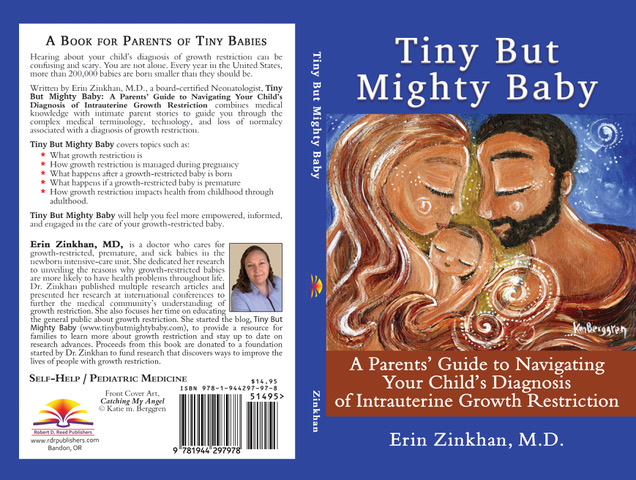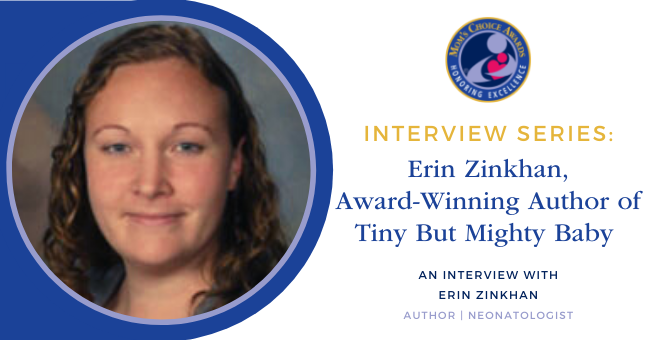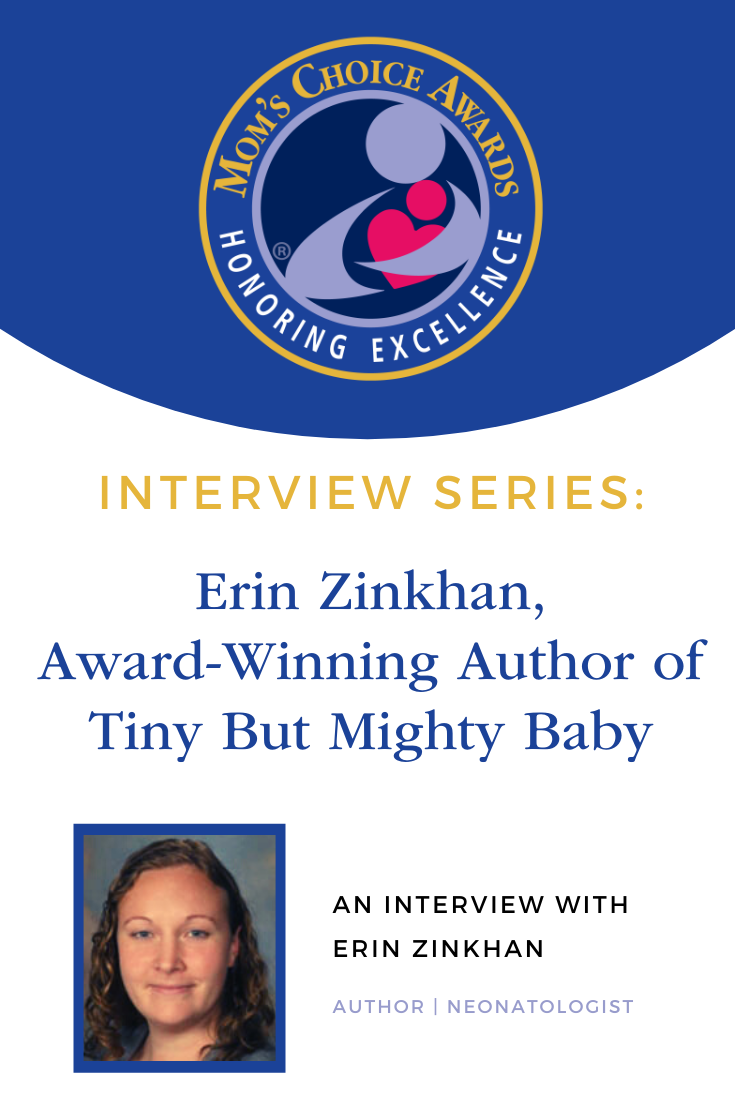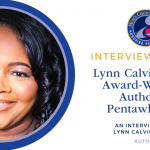Mom’s Choice Awards is excited to announce another post in our interview series where we chat with the inventors, designers, publishers, and others behind some of our favorite family-friendly products.
Hello, Mom’s Choice readers! We hope this finds you well- thanks for joining us for another installment of our interview series. We were privileged to speak with Mom’s Choice Award-winning Author Erin Zinkhan, who wrote the parenting book Tiny But Mighty Baby. Tiny But Mighty Baby is a parents’ guide to navigating their child’s diagnosis of intrauterine growth restriction that combines medical knowledge with intimate parent stories that guide the reader through the complex medical terminology, technology, and loss of normalcy associated with a diagnosis of growth restriction. Tiny But Mighty Baby is a vital resource for any parenting or caretaker struggling to understand their child’s diagnosis of intrauterine growth restriction. Keep reading to find out more about Erin and how she came to write such an insightful book!
MCA: Hi Erin, thank you so much for joining us today, and congratulations on your Mom’s Choice Award! Tiny But Mighty Baby is so educational and helpful to parents who may feel lost dealing with a new medical diagnosis for their child. Can we first start the interview by finding out a little bit about yourself?

Erin Zinkhan, Author of “Tiny But Mighty Baby.”
Erin: I am a Neonatologist (a physician that cares for sick and premature infants in the newborn intensive care unit (NICU)). I spent my academic career researching the ways that intrauterine growth restriction (a condition where a baby does not grow enough before birth) leads to adult medical diseases such as obesity, diabetes, high blood pressure, and high blood lipids. In my free time, I garden – I have a huge garden, so I’m also canning, freezing, drying, and using other techniques to preserve food for the year, I spend time with my family, and I volunteer at the local animal shelter, specifically with the orphaned kittens.
MCA: That is wonderful, I am a huge gardener and animal lover myself! What lead you on your path from your medical career to eventually becoming a writer?
Erin: I didn’t actually want to become a writer. As kids, my older sister and I went to a variety of summer camps. She always picked the writing and fine arts camps, and I picked the science camps where I got to swim in quicksand and slide down a mudslide (I was basically never clean as a kid)! I did my undergraduate training in bioengineering before going to medical school. So, until I had to start writing research papers as a scientist-physician, I had minimal experience or interest in writing in general. When I had to start writing research papers, I realized that I was actually really bad at it! The science was easy, the writing was so painful. Realizing that I needed to work on this aspect of myself for my career, I learned medical grammar from the American Medical Writers Association, and armed with better knowledge of how to do things that others learn much earlier than I did (like how to write a sentence that makes sense), I discovered that I actually not only don’t mind writing, but I actually like it! As the years progressed, I learned more and became more conformable with communicating professionally in writing through research papers and grants, and it became easier and more enjoyable.
MCA: You had a very interesting progression in your writing career, thank you for sharing that! What was your inspiration for writing Tiny But Mighty Baby?
Erin: I wrote the book Tiny But Mighty Baby because I routinely had the discussion with my patients’ parents that their small baby would have challenges later in life. One of them had a book about the NICU on her lap and had said that it brought her great comfort to know that she wasn’t alone in her NICU experience and that it helped her feel more comfortable with all of the medical stuff around her baby. I started thinking about how great it would be for parents to have a book about growth restriction to help them have that same comfort. But, there wasn’t a book about growth restrictions for families. So, after spending a year thinking about whether I really wanted to undertake such a crazy task, I decided that I was in the ideal position to help more parents than just my patients’ parents and to educate and inform about growth restrictions. So, I started writing an outline, and the book just came together with the help and enthusiasm of the parents who contributed their stories to the book.
MCA: Well I think I can speak for all parents when I say thank you for writing such a book, it was very much needed. I read one review online from a parent whose child was born an SGA say that she wished she had your book as a resource at the time of her pregnancy and birth. What are some of the key topics discussed in Tiny But Mighty Baby?
Erin: The key topics in the book are,
- What growth restriction is.
- How growth restriction is diagnosed.
- How growth restriction is managed during pregnancy.
- How growth restriction is diagnosed and managed after a baby is born full-term.
- What complications can happen because of growth restriction after a baby is born full-term and preterm.
- How growth restriction impacts health throughout life.
MCA: Can you tell us about the long-term health problems that may have a root in issues that developed in the fetus during pregnancy?

“Tiny But Mighty Baby” Cover Art.
Erin: There are several main areas of long-term health that are impacted by growth restriction. First, the metabolic health issues – obesity, diabetes, high lipids, high blood pressure, etc. Second, the developmental/neurologic health issues – some increased developmental delay in childhood that can be seen in adulthood as lower IQ. Third, the immunological health issues – increased numbers of infections that are common (the common cold, flu, etc.). There are some very recent data showing that covid increases the risk of growth restriction, but we don’t yet know if people who were growth restricted at birth are more likely to get covid.
MCA: That is absolutely fascinating, I have to be sure to keep up with those covid-related findings. What kind of response from readers have you received?
Erin: So far the response has been really positive, both from parents and physicians (who are now recommending it to their patients!). I actually found a copy of my book at the bedside of one of my patients in the NICU, which was especially cool. The parents didn’t know that I’d written it, they just wanted to know more about growth restriction because their baby had it.
MCA: If you could ensure readers of your book would have one key takeaway, what would it be?
Erin: The main point of Tiny But Mighty Baby is that babies with intrauterine growth restriction may have some health challenges throughout their lives, but most of them do very well.
MCA: Thank you for such an intriguing and informative interview, Erin! Be sure to keep us posted on what’s next for you in your writing career.
You can learn more about Erin Zinkhan and her award-winning book, Tiny But Mighty Baby by visiting her MCA Shop pages.






